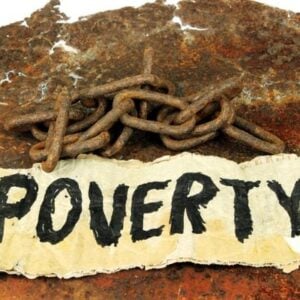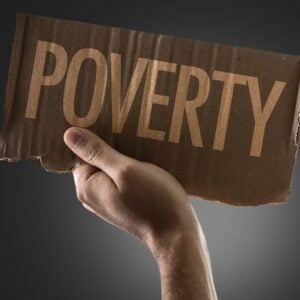The World Bank has released “Reclaiming Momentum Towards Prosperity: Pakistan’s Poverty, Equity and Resilience Assessment,” the first comprehensive evaluation of poverty and welfare trends in Pakistan since the early 2000s. The report shows that after a steady decline in poverty from 64.3% in 2001-02 to 21.9% in 2018-19, the national poverty rate began rising in 2020. This reversal is attributed to compounding shocks such as COVID-19, inflation, floods, and macroeconomic stress, alongside the limitations of the consumption-driven growth model that fueled earlier gains. The assessment emphasizes the need for sustained, people-centered reforms to protect vulnerable families, expand livelihoods, and increase access to essential services.
Drawing on 25 years of household surveys, nowcasted projections, geospatial analysis, and administrative data, the report uses Pakistan’s national poverty line and methodology for official estimates and global thresholds for international comparisons. For periods beyond the 2018-19 survey round, microsimulation models were applied to project poverty trends, with updated estimates expected after the release of HIES 2024-25 data. Bolormaa Amgaabazar, World Bank Country Director for Pakistan, highlighted the importance of protecting past poverty reduction gains while accelerating reforms that expand opportunities, especially for women and youth.
The assessment finds that poverty reduction over the past two decades was mainly driven by rising non-agricultural labor income, as households shifted from farming to low-quality service jobs. However, slow and uneven structural transformation has hindered diversification, job creation, and inclusive growth, leaving low productivity across sectors. Over 85% of jobs remain informal, and women and youth are largely excluded from the labor market. Significant human capital gaps persist, with nearly 40% of children stunted, one-quarter of primary-school-aged children out of school, and 75% of attending children unable to read a simple story by the end of primary school. Public service deficits remain widespread, with only half of households having safely managed drinking water in 2018 and 31% lacking safe sanitation.
Spatial disparities are also pronounced, with rural poverty more than twice as high as urban poverty and historically disadvantaged districts continuing to lag behind. Unplanned urbanization has created “sterile agglomerations,” dense settlements with low living standards. Christina Wieser, Senior Economist and lead author of the report, emphasized that structural vulnerabilities threaten progress in poverty reduction and that reforms expanding access to quality services, protecting households from shocks, and creating better jobs—particularly for the bottom 40%—are essential for durable and inclusive growth.
The report outlines four key pathways to restore progress. First, invest in people, places, and opportunities to address human capital gaps, particularly for disadvantaged populations, through improved health, education, housing, water, and sanitation services, alongside strengthened local governance. Second, enhance household resilience with responsive and inclusive social safety nets. Third, adopt progressive fiscal measures, including improved municipal finance, phased removal of inefficient subsidies, and targeted investments for the poorest. Fourth, invest in timely and robust data systems to guide decision-making, allocate resources effectively, and monitor results.
Pakistan has been a World Bank member since 1950, receiving over $48.3 billion in assistance to date. The current portfolio includes 54 projects with a total commitment of $15.7 billion. The International Finance Corporation (IFC) has invested approximately $13 billion since 1956, supporting diverse sectors such as renewable energy, financial inclusion, infrastructure, agribusiness, manufacturing, housing, healthcare, and trade.





